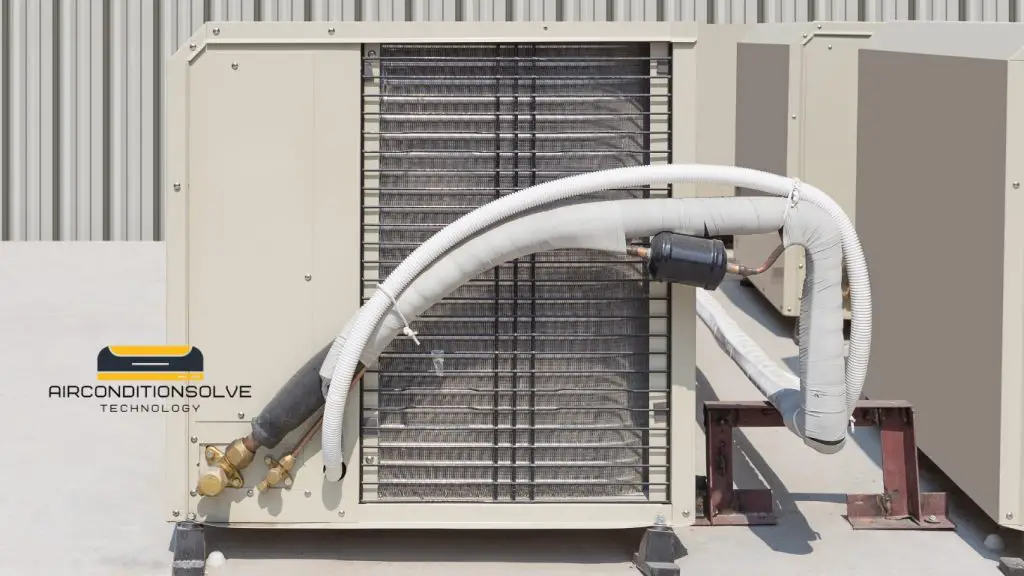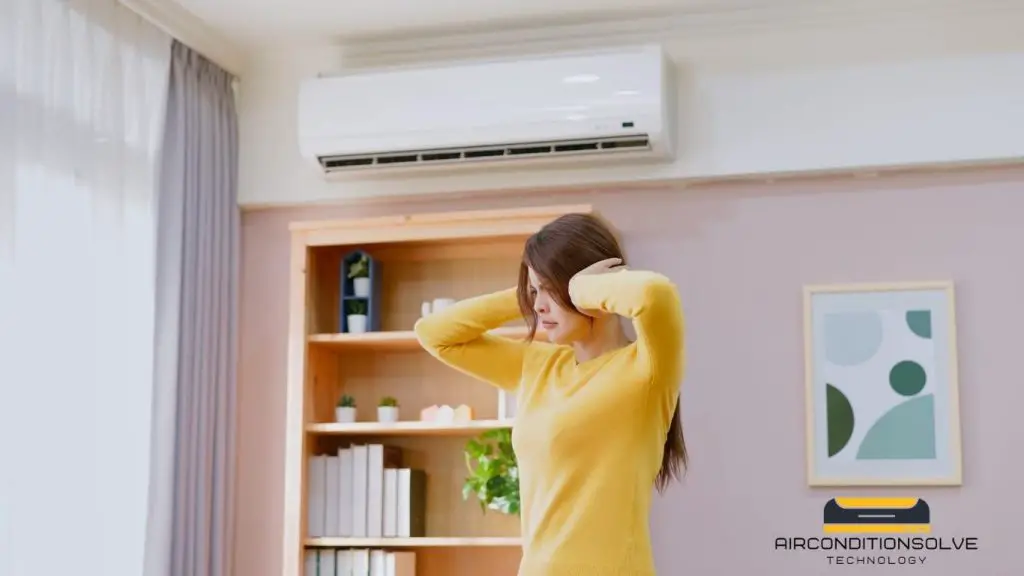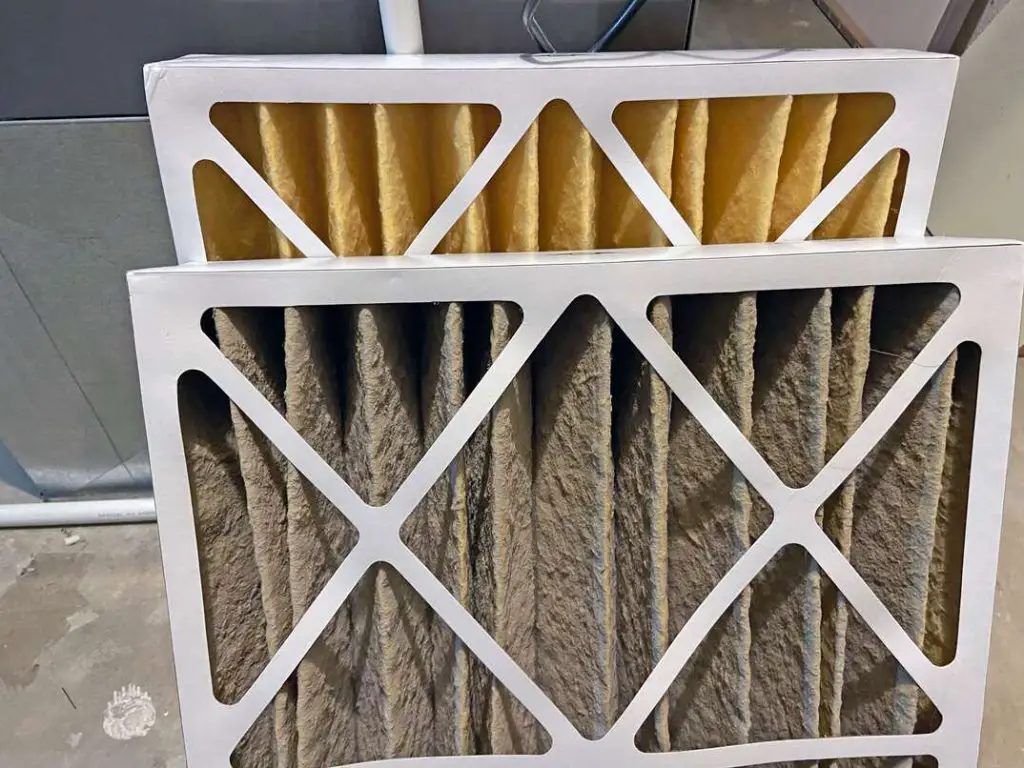HVAC air conditioning filters should be changed every 1 to 3 months for optimal performance. Regular filter changes improve air quality and help prevent system breakdowns.
Welcome to our guide on HVAC air conditioning filter maintenance. One of the most important tasks to keep your air conditioning system running smoothly is regular filter changes. We will discuss how often you should change your HVAC air conditioning filters to ensure optimal performance and improve air quality in your space.
We will also explore the benefits of regular filter changes and provide some tips on proper filter maintenance. By the end of this guide, you will have a clear understanding of the importance of timely filter replacements and how they contribute to the overall efficiency and longevity of your HVAC system. Let’s dive in and get started!
Importance Of Maintaining Clean Hvac Air Filters
The Importance of Maintaining Clean HVAC Air Filters
Ensuring Energy-efficient Cooling
Regularly changing your HVAC air conditioning filters plays a crucial role in ensuring energy-efficient cooling in your home. When your filters become clogged with dirt, dust, and debris, it restricts the airflow in your HVAC system, forcing it to work harder to maintain your desired temperature. This increased strain on the system not only consumes more energy and drives up your utility bills, but it also reduces the overall cooling efficiency of your HVAC unit. By keeping your air filters clean and replacing them as recommended, you can optimize your system’s performance and achieve a more energy-efficient cooling experience.
Enhancing Indoor Air Quality
A clean HVAC air filter is your first line of defense against indoor air pollution. As the air circulates through your home, the filter captures contaminants such as dust, pollen, pet dander, and even mold spores. Over time, these particles can accumulate in the filter, inhibiting its ability to effectively trap pollutants. When the filter is dirty, these harmful particles can bypass the filter and enter your living space, contributing to poor indoor air quality. By regularly changing your air filters, you can ensure that your HVAC system is effectively removing contaminants from the air, improving the air quality and promoting a healthier living environment for you and your loved ones.
Extending Hvac System Lifespan
One of the most significant benefits of maintaining clean HVAC air filters is that it helps to extend the lifespan of your HVAC system. When the air filters are dirty and clogged, the system has to work much harder to draw in air and maintain a consistent airflow. This puts excessive strain on the HVAC components, leading to premature wear and tear. Ultimately, a stressed system is more prone to breakdowns and can require costly repairs or even a complete replacement. By regularly replacing your air filters, you reduce the strain on your HVAC system, allowing it to operate more efficiently and extending its overall lifespan. This simple maintenance task can save you money in the long run and ensure your HVAC system serves you well for years to come.

Credit: www.homedit.com
Factors Affecting Air Filter Lifespan
Factors affecting the lifespan of HVAC air conditioning filters can vary depending on usage, environment, and filter quality. It is generally recommended to change air filters every 1-3 months to ensure optimal performance. Regular filter changes can improve air quality, energy efficiency, and overall system longevity.
Filter Type And Material
When it comes to HVAC air conditioning filters, one of the key factors that affects their lifespan is the type and material of the filter itself. Different filters are designed to capture different types of airborne particles, and the efficiency of the filter plays a role in how long it can effectively function. Generally, there are three basic types of air filters: fiberglass filters, pleated filters, and high-efficiency filters. Out of these, high-efficiency filters are considered to be the most effective in removing dust, pollen, and other contaminants from the air. Moreover, the material used in the filter, such as synthetic fibers or cotton, can also impact its durability. Synthetic filters are known to have longer lifespans compared to cotton ones.
Environmental Conditions
The environmental conditions surrounding your HVAC system can significantly impact the lifespan of your air conditioning filter. Dusty and polluted environments, such as areas near construction sites or industries, can cause filters to clog up more quickly. On the other hand, cleaner environments require less frequent filter changes. The presence of pets in your home can also contribute to a faster clogging of the filter due to pet hair and dander. Additionally, factors like humidity, temperature, and ventilation can affect how quickly the filter becomes dirty and needs to be replaced.
Occupancy And Usage
The number of people occupying a space and the amount of usage the HVAC system gets can influence how often the air conditioning filter needs to be changed. In a commercial setting with high foot traffic, the filter may need to be replaced more frequently, as there is an increased amount of dust and contaminants being circulated. Similarly, in larger households with multiple occupants, the filter may become dirty more quickly. Additionally, if the HVAC system operates continuously, such as during hot summers, the filter may require more frequent changing compared to seasons with less usage.
To maximize the lifespan of your HVAC air conditioning filter, it is essential to consider these factors. Regularly inspecting the filter and replacing it when necessary can help ensure that your system operates efficiently and the air quality inside your home remains optimal. By being mindful of the filter type and material, environmental conditions, and occupancy and usage, you can stay on top of filter maintenance and enjoy cleaner, healthier air throughout the year.
Determining The Frequency Of Filter Changes
Determining the frequency of HVAC air conditioning filter changes is crucial for maintaining optimal indoor air quality. Regular filter replacements, typically every 1-3 months, ensure efficient functioning and prolong the lifespan of your HVAC system while reducing allergens and contaminants in the air.
General Guidelines For Standard Filters
When it comes to maintaining your HVAC system, one of the most important tasks is changing the air conditioning filter on a regular basis. A clean filter ensures that your system works efficiently, improves indoor air quality, and extends the lifespan of your HVAC unit. However, the frequency at which you should change your air conditioning filter can vary depending on several factors.
Generally, it is recommended to change standard filters every 30 to 60 days. These filters capture dust, pollen, dander, and other small particles. However, certain factors may require more frequent filter changes.
Factors Influencing Frequency Of Filter Changes
Several factors can influence how often you should change your HVAC air conditioning filter. These factors include:
- Number of household occupants: The more people living in your home, the more pollutants and contaminants are being produced.
- Pets: If you have pets, their fur and dander can accumulate quickly in the filter.
- Allergies and respiratory conditions: Individuals with allergies or respiratory conditions may benefit from more frequent filter changes to ensure cleaner air.
- Location: If you live in an area with higher pollution levels or high pollen counts, you may need to change your filter more frequently.
- Smoking: Smoking indoors can introduce additional pollutants into your home, leading to the need for more frequent filter changes.
It’s important to be mindful of these factors and monitor the performance of your air conditioning filter regularly to ensure optimal efficiency and air quality.
Monitoring Filter Performance
Monitoring the performance of your air conditioning filter is vital in determining when it needs to be changed. Here are a few signs that may indicate it’s time to replace your filter:
- Visible dirt and dust buildup on the filter
- Reduced airflow from vents
- Inconsistent temperature control
- Increase in energy bills
- More frequent allergy or respiratory symptoms
By paying attention to these signs and regularly checking your filter, you can ensure that it is changed at the appropriate time.

Recommended Filter Change Schedule
One of the most essential aspects of maintaining a healthy and efficient HVAC system is regularly changing the air conditioning filters. Clean filters not only improve the indoor air quality but also enhance the overall performance of the system. However, determining the right frequency for filter changes can be confusing. In this section, we will discuss the recommended filter change schedules for residential and commercial HVAC systems, as well as provide some valuable tips for consistent filter maintenance.
Filters For Residential Hvac Systems
For residential HVAC systems, it is generally recommended to change the air conditioning filters every 30 to 90 days. The exact time frame may vary depending on various factors such as the filter type, the number of occupants in the house, the presence of pets, and the level of air pollution in the area. However, as a general rule of thumb, homeowners should aim to inspect their filters monthly and change them when they are visibly dirty or clogged.
Regular filter changes not only help to maintain a healthy indoor environment but also prevent strain on the HVAC system. A clogged filter can restrict the airflow, leading to reduced efficiency and increased energy consumption. Furthermore, it can cause unnecessary wear and tear on the system, potentially resulting in costly repairs or premature system failure.
Filters For Commercial Hvac Systems
When it comes to commercial HVAC systems, the filter change schedule may need to be more frequent compared to residential systems. This is because commercial buildings often have higher occupancy rates, increased foot traffic, and a larger volume of pollutants in the air. As a result, commercial filters tend to accumulate dirt and debris at a faster rate, requiring more frequent replacements.
While the ideal filter change frequency for commercial systems can vary depending on the specific environment and type of business, it is generally recommended to change these filters every six to twelve weeks. Regular inspections should also be conducted to ensure the filters are functioning optimally and are not causing any issues with the system’s performance.
Tips For Consistent Filter Maintenance
Consistency is key when it comes to maintaining HVAC air conditioning filters. Here are some valuable tips to ensure consistent filter maintenance:
- Mark your calendar: Set reminders to inspect and change your filters at regular intervals. This will help you stay on top of your filter maintenance routine.
- Keep spare filters on hand: Stock up on extra filters so that you always have a fresh one available when it’s time for a replacement.
- Check for clogs and dirt: Regularly inspect your filters for any signs of dirt, dust, or clogs. If you notice excessive buildup, it’s time for a replacement.
- Consider higher quality filters: Investing in higher quality filters can help improve indoor air quality and reduce the frequency of replacements.
- Follow manufacturer recommendations: Always refer to the manufacturer’s instructions and recommendations for your specific HVAC system and filter type.
By following these tips and adhering to the recommended filter change schedules, you can ensure that your HVAC system operates efficiently, maintains healthy indoor air quality, and avoids unnecessary breakdowns or repairs.
Signs Of A Dirty Or Clogged Air Filter
Regularly changing the air filters is vital to maintaining the efficiency and performance of your HVAC air conditioning system. Over time, these filters can become clogged with dust, dirt, pollen, and other airborne particles, hindering the airflow and reducing the system’s overall efficiency. Recognizing the signs of a dirty or clogged air filter is crucial in order to prevent further issues and ensure clean and fresh air circulation in your home.
Reduced Airflow And Efficiency
A dirty or clogged air filter can significantly restrict the airflow in your HVAC system. As the filter becomes laden with particles, it creates a barrier that hinders the movement of air through the system. This results in reduced airflow, making it harder for your HVAC unit to cool or heat your living space effectively. With restricted airflow, the system has to work harder to achieve the desired temperature, causing unnecessary strain on the components, which can lead to premature wear and tear.
Furthermore, reduced airflow not only affects the comfort level in your home, but it also affects the efficiency of your HVAC system. When the system works harder to push air through a clogged filter, it consumes more energy, leading to higher utility bills. This increased energy consumption not only impacts your budget but also has a negative environmental impact, contributing to unnecessary greenhouse gas emissions. Thus, regular inspection and replacement of air filters are essential for optimizing energy efficiency and reducing carbon footprint.
Increased Energy Consumption
A clogged air filter can significantly increase the energy consumption of your HVAC system. As the filter becomes filled with dirt and debris, the system is forced to work harder to maintain adequate airflow. This additional strain leads to increased energy consumption, as the HVAC unit requires more power to cool or heat your home. This not only results in higher utility bills but also places unnecessary stress on the system, potentially shortening its lifespan.
By regularly changing your air filters, you can prevent excessive energy usage and promote optimal efficiency. Clean air filters allow your HVAC system to operate smoothly, delivering the desired temperature without overworking the components. This not only saves you money in the long run but also helps reduce your carbon footprint, contributing to a greener and more sustainable environment.
Allergy And Asthma Symptoms
Dirty air filters can negatively impact indoor air quality, especially for those with allergies or asthma. As particles accumulate on the filter, they can be recirculated throughout your home, causing respiratory issues and exacerbating existing conditions. Dust, pollen, mold spores, pet dander, and other allergens can become trapped in the filter and release into the air when the system is in operation.
Regularly changing your air filters helps to remove these airborne particles, reducing the potential for allergy and asthma symptoms. Clean filters ensure that the air circulating through your home is free from harmful contaminants, providing a healthier living environment for you and your family. If you or your loved ones suffer from allergies or asthma, it is particularly important to stay diligent with filter maintenance to minimize potential triggers and maintain optimal indoor air quality.

Frequently Asked Questions For How Often Should Hvac Air Conditioning Filters Be Changed?
How Often Should Hvac Air Conditioning Filters Be Changed?
Regularly changing your HVAC air conditioning filters is crucial for maintaining good indoor air quality. Experts recommend changing them every 30 to 90 days, depending on factors such as the filter type, indoor air quality, and pet presence in the home.
Regular filter changes can improve energy efficiency and prolong the life of your HVAC system.
Conclusion
Regularly changing your HVAC air conditioning filters is crucial for maintaining the efficiency and air quality of your system. By following the manufacturer’s recommendations and checking them every one to three months, you can ensure optimal performance and prevent potential issues.
Don’t overlook this simple yet vital maintenance task, as it can have a significant impact on your HVAC system’s lifespan and your indoor air quality. Prioritize filter changes and enjoy cleaner, healthier air in your home.

